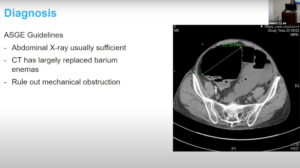NEW YORK (Reuters Health) – A multicenter center study has shown that adding cetuximab to neoadjuvant chemotherapy and preoperative radiotherapy improves overall survival after excision of high-risk rectal cancer. However, it does not improve complete response rates, according to a report in the April 2nd online issue of the Journal of Clinical Oncology.
While the results confirmed the efficacy of neoadjuvant chemotherapy in the treatment of high-risk localized rectal cancer, the authors say “we do not currently recommend the routine use of cetuximab in this patient population.”
Dr. David Cunningham, with the Royal Marsden Hospital in Sutton, Surrey, UK, and colleague note that cetuximab is a potent radiosensitizer, and they explain that they previously conducted a phase II trial that demonstrated the feasibility of administering neoadjuvant oxaliplatin and capecitabine (CAPOX) before chemoradiotherapy and total mesorectal excision in patients with poor-prognosis rectal cancer.
In the current study they therefore examined the benefit of adding weekly cetuximab to the CAPOX course in that protocol. Their analysis focused on 90 patients with KRAS/BRAF wild-type rectal tumors, which are likely to be susceptible to anti-EGFR therapy.
The primary endpoint of a complete response was not significantly different without cetuximab added to CAPOX (9%) compared to that with the addition of cetuximab (11%; p=1.0), the investigators report. Also, progression-free survival was similar in the two groups (hazard ratio 0.65; p=0.363).
However, cetuximab did improve some secondary measures. The radiologic response rate in the two arms was 51% vs 71% (p=0.038) after the neoadjuvant chemotherapy course and 75% vs 93% (p=0.028) after preoperative chemoradiation.
Furthermore, cetuximab was associated with better overall survival, with a mortality hazard ratio of 0.27 (p=0.034), Dr. Cunningham and colleagues report.
They conclude, “On the basis of these results, there are sufficient data to indicate that cetuximab has some biologic activity in this setting, and further evaluation in combination with alternative chemotherapy backbones may yield more promising results.”
SOURCE:




